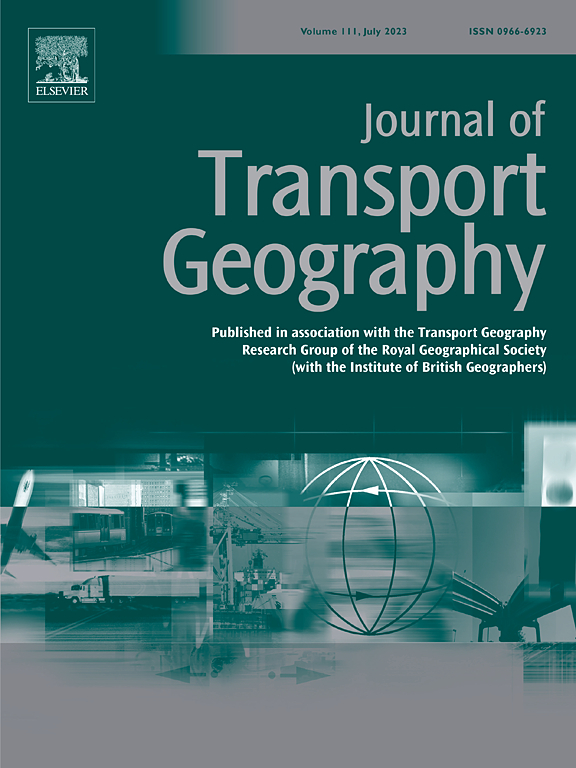The effect of dockless e-bike-sharing on reducing carbon emissions: A dynamic investigation of two small Chinese cities between 2020 and 2022
IF 6.3
2区 工程技术
Q1 ECONOMICS
引用次数: 0
Abstract
Transport sector is a major contributor to global carbon emissions. E-bike-sharing (EBS), emerging as the next generation of shared micromobility, offers an eco-friendly alternative to reduce mobility-associated carbon emissions. Based on user-generated EBS data of one week in three consecutive years between 2020 and 2022 in two small Chinese cities (i.e., Yuhuan and Rui'an), this paper aims to quantify trip-specific carbon emissions and then investigate the spatiotemporal dynamic changes of carbon emission reduction patterns. Results show that EBS reduced 29.50 and 49.12 t of carbon emissions over three weeks from 2020 to 2022 in Yuhuan and Rui'an, respectively. Over 95 % of the reduced carbon emissions are from substituting driving trips. The trip-level environmental benefit of EBS in Yuhuan is 306.29–382.64 g of CO2, higher than that in Rui'an (172.21–177.07 g). Carbon reduction patterns are temporally similar to typical travel patterns and show strong spatial auto-correlation. There are more carbon emission reductions in leisure-related places on weekends and education-related places on weekdays. This study informs relevant transport planning and policy-making for improving e-bike-sharing services and supporting sustainable development in cities.
无桩共享电动自行车对碳排放的影响:基于2020 - 2022年中国两个小城市的动态调查
交通运输部门是全球碳排放的主要贡献者。电动自行车共享(EBS)作为新一代共享微型交通工具,提供了一种环保的替代方案,以减少与交通相关的碳排放。基于2020 - 2022年中国两个小城市(玉环和瑞安)连续3年1周的用户生成EBS数据,量化出行碳排放,研究出行碳减排模式的时空动态变化。结果表明,2020 - 2022年,EBS在3周内分别减少了玉环和瑞安市29.50和49.12 t的碳排放量。超过95%的减少的碳排放来自于替代驾车出行。玉环地区EBS的行级环境效益为306.29-382.64 g CO2,高于瑞安市(172.21-177.07 g)。碳减排模式在时间上与典型的旅行模式相似,并表现出较强的空间自相关性。周末与休闲相关的场所和工作日与教育相关的场所的碳排放量减少更多。本研究为改善共享电动自行车服务和支持城市可持续发展提供了相关的交通规划和政策制定。
本文章由计算机程序翻译,如有差异,请以英文原文为准。
求助全文
约1分钟内获得全文
求助全文
来源期刊

Journal of Transport Geography
Multiple-
CiteScore
11.50
自引率
11.50%
发文量
197
期刊介绍:
A major resurgence has occurred in transport geography in the wake of political and policy changes, huge transport infrastructure projects and responses to urban traffic congestion. The Journal of Transport Geography provides a central focus for developments in this rapidly expanding sub-discipline.
 求助内容:
求助内容: 应助结果提醒方式:
应助结果提醒方式:


